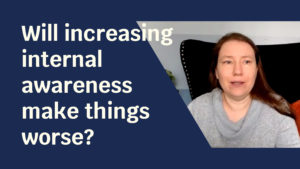
Our lives and our wants
I recently heard someone shaming someone else for not loving every minute of being a parent. Part of what they said is that the person must have really wanted to be a parent, otherwise they wouldn’t have become a parent in the first place, and I don’t think that’s a reasonable assumption at all.
Whether or not the person did or didn’t want to become a parent, a) doesn’t negate how hard it is at the moment, and b) the fact that they ended up as a parent says very little about whether they wanted to be one originally or want to be one now.
And I think this applies to many parts of our lives.
Whether or not someone has kids, or is married, says very little about their preferences for parenting or marriage.
Whether or not someone has kids, or is married, says very little about their preferences for parenting or marriage. The social pressure to get married is so strong that some people marry without really wanting to, or convince themselves they want to get married when they really don’t, or they want to marry but not the person that they ended up with, or they think they’re going to have one kind of relationship and it turns out very differently.
There are also lots of reasons why someone may want to marry but can’t. Whether that’s because of legal, financial, or social pressures. Or maybe they just can’t seem to find the right partner.
Similarly with children, someone might not want kids, but gets pregnant and keeps the child because of social, legal, religious, or financial reasons. Or they come around to the idea, but it wasn’t what they originally wanted for their life.
Maybe they actually want to have kids, but can’t conceive, carry, or support them.
How we’re shaped
There are similar types of reasons that apply to where you live, which parents and family you ended up with, which educational or job opportunities you get, which friends were available to you, and all sorts of other aspects of life that you may have little or no control over. Or the choices you made were strongly influenced from the outside and didn’t reflect what you really wanted.
Many aspects of our lives are shaped by strong social pressures, happenstance, luck, and (mis)fortune, that don’t necessarily reflect our actual preferences, yet it’s common that other people assume that’s what we wanted.
Or we believe that lie ourselves, and we blame ourselves for not making better choices.
My invitation to anyone reading this is to notice how much of your own life has been strongly influenced by social pressures or other factors outside of your control.
Many aspects of our lives are shaped by strong social pressures and happenstance, yet it’s common that other people assume that’s what we wanted.
Because when we start to notice that’s what’s going on, it doesn’t magically change anything or automatically give us the superpower to not be affected by the system, but it allows us to be somewhat less affected by it at a personal level.
What I mean by that is that it can release some self-blame, and self-judgment, and guilt, or even judgment for other people. And releasing some of that guilt and pressure can lead to thinking about your own life in a slightly different way.
It might feel like releasing a burden, or being freed. Or it might bring up some grief about what you didn’t get, or what was done to you. It’s normal, and OK, and healthy to work through that grief. You’ll know that you’ve fully worked through that grief when it feels lighter, when you start to feel that sense of freedom.
The freedom
And, with that freedom, other options might occur to you that you hadn’t thought of before. You can deal with the life that you ended up with in maybe a slightly different way, and that can lead to other slightly different options, and on and on. Making little improvements here and there, which can build up over time to eventually having much bigger options.
It constantly amazes me how big of a difference it can make to release even a little self-blame and self-judgment. And how big of a difference tiny changes can make when you keep making more and more of them.
So that’s my thought for today. I just couldn’t stand by and watch that person get criticized without saying something, and since it wasn’t a live conversation and I couldn’t respond to them in real time, you got to read about it instead. But I hope that this might spark some interesting reflections for you.
What in your life were you pressured into, either directly or by general social expectations? Was that in line with what you wanted?




